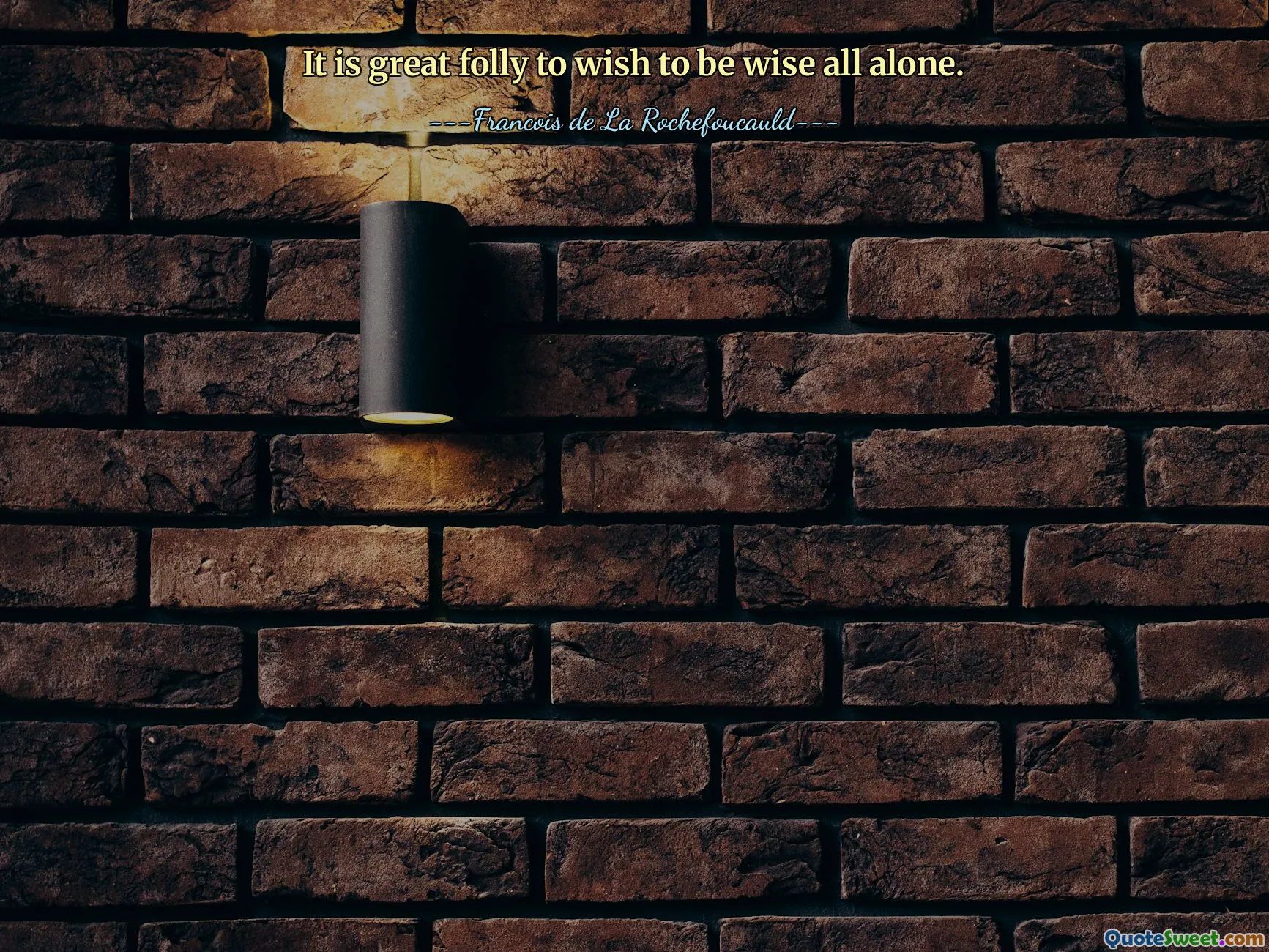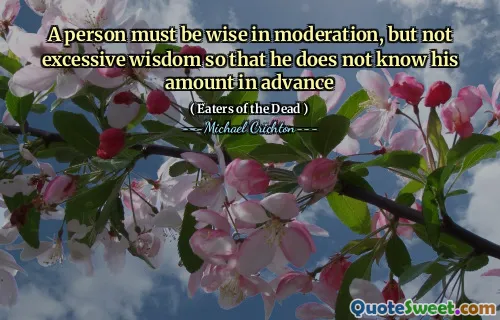
It is great folly to wish to be wise all alone.
This quote by Francois de La Rochefoucauld touches upon the intrinsic social nature of wisdom. Trying to be wise in solitude is described as 'great folly,' highlighting the limitations of individual intelligence when removed from the context of collective experience and shared knowledge. Wisdom often involves the synthesis of multiple perspectives, insights, and critiques. To wish for solitary wisdom is to overlook the value of collaboration, dialogue, and learning from others. It serves as a reminder that even the most insightful individuals benefit from the richness that comes from engaging with different viewpoints. Moreover, the quote can be interpreted as a subtle critique of arrogance or intellectual isolationism, where one might believe themselves capable of knowing or understanding everything independently. True wisdom is more than accumulated facts or personal insight; it embodies humility, openness, and the acknowledgment of our human interconnectedness. This underscores the idea that knowledge grows and evolves through conversation and shared experience. In practical life, this quote encourages us to seek communities, mentors, and allies in our journey toward wisdom. It warns against the trap of intellectual solitude, which can stunt growth and cloud judgment. Ultimately, La Rochefoucauld reminds us that wisdom is not a solitary pursuit but a collective treasure, cultivated through relationship and exchange.











